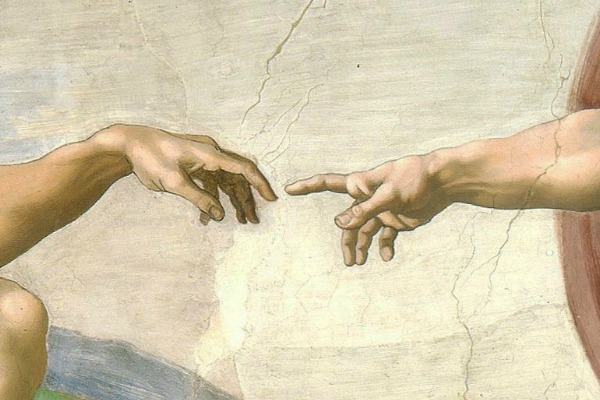
28 May 2025
Kenan Camurcu
As the 19th century rapidly drew to a close, and Europe, carrying the banner of civilization in an accelerating marathon, witnessed the emergence of critical perspectives in intellectual history, Abdulhamid II—the ideological ancestor of today's conservatism—tried every means to prevent innovative ideas from entering Ottoman lands and to maintain his absolute power. Translating these measures to the present day, we'd see things like internet bandwidth throttling, determining what constitutes truth, prosecuting alternative information and interpretations as disinformation through the judiciary, criminalizing the undisputed right to assembly and protest against the state, and so on. In those days, this cocktail of actions was known as espionage, press regulations, and the banning of words like "revolution" and "despotism."
In Qajar Iran, the twin of the Ottoman Empire inheriting the Seljuk legacy, Abdulhamid's counterpart, Mozaffar al-Din Shah, did the same to civil society and dissidents, just like the monozygotic symmetry we observe today.
However, if we look at the situation by foregrounding society as the subject, we would be unfair to the Iranian people if we didn't highlight a crucial difference: Iran undoubtedly suffers from a much worse and cruder despotism than we see here, but unlike here, 85% of the Iranian populace is opposed to the absolutist velayat-e faqih regime. They are so opposed that, despite the terrifying treatment from the regime, they do not hesitate to voice their objections at every opportunity. Therefore, while in Iran the political regime suppresses reform demands by using all instruments of coercion in the most brutal manner, the reason political reform cannot be achieved in this land is not the resistance of the state apparatus, but the despotism of civil society. Societal polarization here means nothing more than factions opposing a despotism that isn't their own.
Civil Islamism That Shredded State Islamism
In contrast to today's Islamism, which is entirely conscripted into the powerful state Islamism, there was once a civil Islamism that shredded the Islamism mobilized by Abdulhamid to retain power. Let's not fail to mention some of its famous figures: Seyyid Bey, Elmalılı Hamdi Bey, Şehbenderzade Filibeli Ahmet Hilmi, Mehmet Akif, and the somewhat more nationalist Namık Kemal, Ali Suavi, Ziya Pasha, and others.
Here's a counter-intuitive point: While the Comtean positivists, ancestors of radical secularism, pledged to preserve the absolutist monarchy with their obsession for a unitary and centralist order, the anti-Abdulhamid civil Islamists pursued the cause of decentralization, civil society, and republicanism.
On this occasion, let's add a cautionary note regarding hopes that contemporary secular-political life might be an alternative to conservative political life: It is well-known that Mahmud II, the ancestor of secular modernization, banned the Bektashi order and handed its lodges over to Sunni Naqshbandi control, isn't it? So, when accusing Abdülhamid, the source of conservative modernization, and his political heirs, is there an intention to overlook this historical fact?
Islamism That Glorifies Prebendalism and Fame
Abdulhamid's Islamism, which fiercely hindered the formation of civil society, was purely political pragmatism and populist. The reason why today's provincial conservatism, with its almost non-existent capacity for judgment, glorifies this Islamism is precisely because it is purely political, recognizes no quality other than loyalty, and disregards merit and competence. Islamists who glorify "arpalık" (sinecures), positions, and fame cling tightly to the isolated, happy life they build in the state's greenhouse, indifferent to the cost of others' unhappiness. Since it cannot produce a culture that would be a center of attraction and cannot establish cultural dominance in society, it joyfully celebrates every act of tyranny emanating from the state apparatus to eliminate its political rivals.
According to Gramsci, the alchemy of moral superiority in civil society is hegemony. But this dominance must be established through culture, literature, art, and education, with society voluntarily adopting and participating in it. In the past, court/official Islamism in its era lacked the ability and sufficiency to create either an alternative to cultural hegemony or its own hegemony. Entertainment at the palace consisted solely of examples from Western culture.
The conservative heirs of court Islamism who emerged in later periods, due to their provincialism, lacked the style, pleasure, and taste capacity to perpetuate palace entertainment. Unable to reject and deny the legacy they inherited, they were forced to construct an imaginary Abdulhamid.
The Sociopathy of Closed-Society Islamism
Since the heirs of Abdulhamid's Islamism made provincialism their official lifestyle within the discipline of closed-society religious orders (tarikat and cemaat), they remained outside traditional entertainment culture, developing antisocial behavior, and even sociopathy, as a reaction to urban secularization.
The new Islamism, which began to emerge with translations in the 1970s, drew inspiration from Ikhwanism, which was provincial in its homeland and easily found its equivalent in Turkey. Its admiration for Salafism, which levels and standardizes life, rendering it joyless and barren, is an understandable phenomenon.
Therefore, the inability of provincial Islamism to connect with the urban and modern Iranian revolution—which moved relatively away from the metaphysical universe—beyond the political sphere is not merely due to sectarian differences. Political Sunnism, fermented from Salafism, a reincarnation of Umayyad Arab nationalism, could not establish contact with the new Shi'ism, which possesses taste, style, art, literature, and aesthetics, even allowing photographs in mosques. Although, the new Shi'ism also became an ideology of provincial domination in Iran after the assassination and early deaths of pioneering and leading figures in the first few years of the revolution weakened it, and control completely fell into the hands of ultra-conservatives.
Consequently, the contemporary legacy of Abdulhamid's Islamism is the politicization of provincialism, and it is devoid of the ability to exhibit cultural presence. This is why Erdoğan repeatedly laments the inability to establish a presence in the cultural sphere. Despite holding uninterrupted political power for many years, he still warns his supporters about difficulties in social and cultural power. (See Hürriyet, May 27, 2017: "President Erdoğan: We have difficulties regarding our social and cultural power")
The principle of hegemony in the cultural sphere is Gramsci's great contribution to political literature. His analyses also transcend geo-cultural boundaries. We need to examine this detail.
Gramsci’s Epic Drama
The discussion of state, civil society, and the public sphere in Western political thought, which expanded from Continental Europe to the Anglo-Saxon hinterland and ultimately universalized its chronological stages, should be considered the main artery of historical flow. At the very eye of the historical cyclone that shook European societies, Antonio Gramsci's (1891-1937) drama takes on an epic quality because he was the philosopher who fell victim to Italian Fascism's decree that his "brain must be silenced for twenty years."
Gramsci was not as fortunate as Arendt, who, witnessing the worst recorded totalitarianism like him, had to move out of range due to the approaching threat and danger. However, despite costing him his life, the prison experience that could not stop or silence him allowed him to develop groundbreaking thoughts in his famous notebooks—thoughts that surpassed Hegel and Marx, serving as milestones, even changing the course of tradition. Norberto Bobbio, in his article "Gramsci and the Concept of Civil Society" (in John Keane, Civil Society and the State, Ayrıntı 1993), recognizes Gramsci's theory as the actor of a new history where the state is no longer seen as an end, but as a means and an apparatus.
The State as Concentrated Violence of Society
Bobbio reminds us that Marx, who opposed Hegel's theory of the state from his youth, argued that the state did not reflect the reality of ethical thought. On the contrary, the state was the concentrated and organized violence of society. For it was not the ultimate goal but an instrument of class domination. With an overly optimistic assessment, one might say Marx was influenced by Bakunin, but in reality, that was a temporary stop where Marx retreated in the face of Bakunin's influence in the International regarding the idea of destroying the state. Once we pass the threshold where Bakunin's initial admiration for Marx turned to resentment, we encounter the state again.
In natural law theory, the concepts of civil society and political society (or the state) carry equivalent meanings. Therefore, the concept of civil society had not yet emerged as the dichotomous opposite of political society. The Aristotelian political society was the civic realm that constituted the natural living environment where people realized themselves. In Rome, the state was also a community of citizens, and in this historical experience, the public-private sphere distinction began to take shape.
Locke and Hobbes, representing early bourgeois political thought, contributed to establishing the framework of legitimacy for class superiority relations peculiar to capitalist society. In this framework, there was the concrete individual in economic relations mediated by the market, in contrast to the abstract citizen of political society. The narrative of civil society, which was speculative and ahistorical in contract theorists, began to gain scientific identity with the development of the theoretical model of classical political economy.
Gramsci, Who Saved Civil Society from Hegel
In this intellectual legacy upon which Gramsci built his views, Hegel's state swallowed civil society, that is, what natural law philosophers described as "the historicization of natural society." Hobbes's and Rousseau's states, on the other hand, completely excluded the state of nature. Marx, grounding the origin of the debate in the material conditions of life, added a new perspective to the approach that the anatomy of civil society should be sought in political economy. According to him, civil society would embrace all the material relations of individuals at a certain stage of the development of productive forces.
Marx was the first to introduce the understanding of the identity between civil society and the infrastructure. While this innovation was a starting point for Gramsci, he turned the analysis upside down—as Marx did to the Hegelian state—arguing that civil society belongs to the superstructural sphere, not the infrastructural sphere. In the section Bobbio calls "one of the most important texts of the Prison Notebooks," Gramsci states: "For the moment, we can fix two major superstructural levels: the one that can be called civil society, meaning the ensemble of organisms generally called 'private,' and the other that can be called political society or the State. These two levels correspond on the one hand to the function of hegemony which the dominant group exercises throughout society and on the other hand to that of direct domination or command exercised through the State and juridical government." (Gramsci, Selections from the Prison Notebooks, p. 12).
The Church (Turkish Diyanet?) as a Hegemonic Apparatus
Gramsci's example of a hegemonic apparatus for the ruling group from the Middle Ages is the Church. Because in that period, the ruling group did not have its own cultural and intellectual apparatus. In this situation, conflict could arise between a secular and secularizing civil society and the state/church. (Antonio Gramsci, Prison Notebooks – Selections, Onur 1986). Those who wish to translate Gramsci's "church" to the experience of this land can freely substitute "Diyanet" (Presidency of Religious Affairs), with its resurgence on July 15, 2016, in its place.
Gramsci's civil society, unlike Marx's, does not encompass all material relations but rather all ideological-cultural relations. Undoubtedly, in Gramsci too, civil society is the "scene/focus of history," but unlike Marx, it is a superstructural phenomenon.
While it seems certain that Gramsci developed his civil society thesis within an intellectual kinship with Marx, Bobbio disagrees: "Contrary to what is believed, Gramsci derives his concept of civil society not from Marx, but clearly from Hegel, albeit in a quite distorted or at least one-sided interpretation." Bobbio goes further, citing one of Gramsci's letters from prison as an example of his sharp opposition to Marx's understanding of the state: "This research will also concern (...) the concept of the state as a dictatorship or other form of repressive apparatus used to control the masses in accordance with a given mode of production and type of economy."
Hegemony's Task of Cultural Leadership
Interpreting Gramsci's reason for foregrounding the theme of hegemony, Bobbio states that it is an element of civil society, located both in opposition to the infrastructure insofar as it represents a superstructural phenomenon, and in opposition to the negative moment of the repressive state insofar as it represents a positive moment of the superstructure. He reminds us that Gramsci often respectfully referred to Lenin, whom he saw as a theorist of hegemony.
However, Bobbio also warns of a detail he believes Gramsci was unaware of: "The term hegemony does not belong to Lenin's usual language. It is characteristic of Stalin's language, who sanctified the term." Indeed, while Gramsci in two 1926 works used hegemony in the sense of political leadership to denote the alliance between workers and peasants, in the Prison Notebooks and Letters he uses it in the sense of cultural leadership. Bobbio attributes Gramsci's insistence on differentiating the definition of hegemony to the strong meaning the concept carries when it refers to the transformation of tradition and culture through the concept of "cultural leadership."
According to Bobbio, hegemony in Gramsci aims not only at the formation of a collective will capable of creating a new state apparatus and transforming society, but also at disseminating a new understanding of the world. The function Gramsci found in hegemony for overcoming pure domination reveals the privileged position of civil society as the mediating factor between the infrastructure and secondary superstructural phenomena. In a society without class divisions, the withering away of the state means the dissolution of political society into civil society.
Civil Society is Not an Arena for the War of All Against All
Gramsci's stateless society, which he calls "regulated society," is the expansion of civil society and hegemonic forces until the entire space occupied by political society disappears.
In the Prison Notebooks, Gramsci notes that the phrases "ethical state" or "civil society," insofar as they belong solely to the realm of pure science, would mean that the image of a stateless state exists in the minds of the greatest political and legal scholars. What he means by "pure science" is this: "as pure science and utopia, based on the assumption that all men are truly equal, therefore equally sensible and equally moral, that is, capable of freely, spontaneously accepting the law, not as an imposition by force by another class, or as something external to consciousness."
Gramsci reinterprets the civil society-state duality, which is critically discussed in the Hegel-Marx lineage, from a dual perspective. The conceptual matrix of the Notebooks, which speaks of consent versus coercion, hegemony versus domination, civilization versus violence, persuasion versus force, and morality versus politics, expresses the organic unity of these dualities.
In Gramsci's analysis, civil society gains meaning as the political and cultural hegemony of a social group over the entire society and as the ethical content of the state, as in Hegel's problematic. Gramsci links civil society with the function of hegemony and political society (the state) with the function of domination.
In Gramsci's analysis, civil society is not the environment for the war of all against all, where selfish individuals pursue their self-interest. Instead, it is the superstructural quality that gives concrete form to the hegemonic appearances of the reproduction of class superiority. Civil society constitutes the hegemonic moment where ideological activities emerge, while the state constitutes the dominance (sovereignty) moment that ensures the control of subordinate classes through coercion.
In Summary
After all these analyses and mediations, if we return to the current experience for practical benefit, it was the inward-looking, "small but mine" doctrine's inventor, the conservative modernizer Abdülhamid, but secular modernism, which made him the subject of devilization in the historical narrative it created, also championed that doctrine. The current conservative experience flows in this channel. Both experiences, being unable to establish genuine hegemony in the cultural sphere, have exaggeratedly used the state apparatus as a tool of domination. The cultural apparatuses created by secular radicalism, thanks to its urban nature and long lifespan, are undoubtedly so strong, deep, and substantial that the conservative cannot close the gap.
Secularism or laicism is not a political issue. It never was. It was an operation to desiccate the essence of meaning and purpose in life and establish the dominance of experimental ideation through the preoccupation with "how." The political outcome arising from this is the hard power to protect the cultural operation. This is why the irrational, mystical, mythical statements and behaviors displayed at every commemoration of Atatürk, who considered science his truest guide, are not seen as a contradiction in the West, which is considered the qibla of modernization; it stems from the legitimate acceptance of the triumph of superstition.
In a country where the most egregious anomalies have become the new normal, where sanity is gone and absurdity is constantly escalating, the number of those who are willing to pay the price to remain decent, sensible, reasonable, moderate, fair, and understanding is melting away like snow. It's hard not to get caught in the maelstrom.
Translated by Gemini





0 Comments